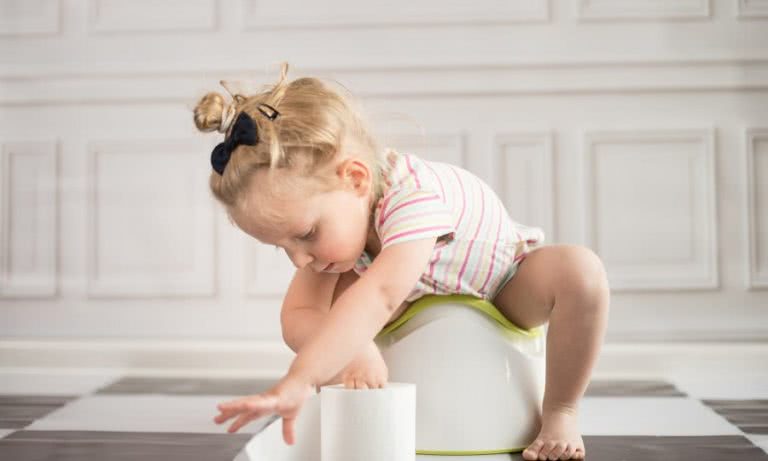It is the milestone parents fear the most. Knowing when to start potty training can be tricky.
This article is not about the where or the how of pee-pees and poo-poos. It’s about when the business gets done. While some believe it best to start potty training as soon as possible, studies show it might be better to wait. Since there are two schools of thought on the matter, it’s best to look at some facts.
As much as you love being involved with nappy changes, the very thought of getting them potty trained makes you break into song, like that princess in Shrek or Tangled. You set a date on the calendar and start counting off the days. And this is where you went wrong. You diarised the event.
Not only do children sense your excitement, but your eagerness to start potty training might be doing your little one more harm than you think.
When to start potty training

In truth there is no set age when potty training should commence. There are many signs that could indicate that the child is ready to begin the exercise, but even these aren’t set in stone, and they vary from child to child.
Some say boys start to tug on their junk when they are ready. Others say it’s when the child comes to tell you they made an accident. However, things can change in a flash, and you’ll have to adjust your plans.
For example, we had begun potty training on our daughter at 24 months, but then our boy was born. She regressed. Immediately she was a baby again. Back on nappies, and having accidents at random intervals. You simply can’t carry on with potty training in the midst of toddler regression. This stage needs to run its course.
The answer for when to start lies in looking at when not to start potty training.
The risks of early potty training
Here is the biggest mind shift you will ever have to make. Going forward, think of the following as a more appropriate description: potty training is teaching a child to hold their poo or pee in until they can get to a potty. Let that marinate a bit.
We know that “holding it in” is bad for adults, but it’s twice as bad for children. Urine and faecal matter contain harmful bacteria. For kiddies, voiding postponement could cause these bacteria to get into the bladder or to cause an infection. In short, holding it in could lead to urinary tract infection, constipation, a dysfunctional bladder, incontinence or bedwetting.
Here are some facts to help you make the right decision
- The bladder is a muscular sac, which continues to grow and only reaches its standard size when the child is about 36 months old.
- Irregular voiding of the bladder and holding it in causes it to become hardened on the outside, which could result in a dysfunctional bladder.
- The gross and fine motor skills required for potty training is the same for dressing oneself. If your child can’t dress themselves, then potty training should be put on hold.
- Studies have proven that early potty training resulted in constipation and an increase in day wetting.
- Potty-training prodigies who master the milestone before 24 months of age are likely to become dysfunctional voiders later or they face potty regression.
- Some preschools threaten to expel toddlers if the child has not undergone potty training. If you are doing potty training because of a policy of your preschool, then find another school immediately.
- Children only start having bowel and bladder control when they are 24 to 30 months old. So, what’s your rush? Let the child master these things first.
In conclusion

We all loathe nappies, but looking at the facts above, you can’t help thinking that it’s best to wait a bit before attempting potty training. The medical costs and long-term health implications of child constipation or bladder problems far outweigh the need to get them off nappies faster.
James Fouche is an author, travel writer, entrepreneur and silly daddy of three. He also writes about parenting and wine, whenever his kids allow him to.


































